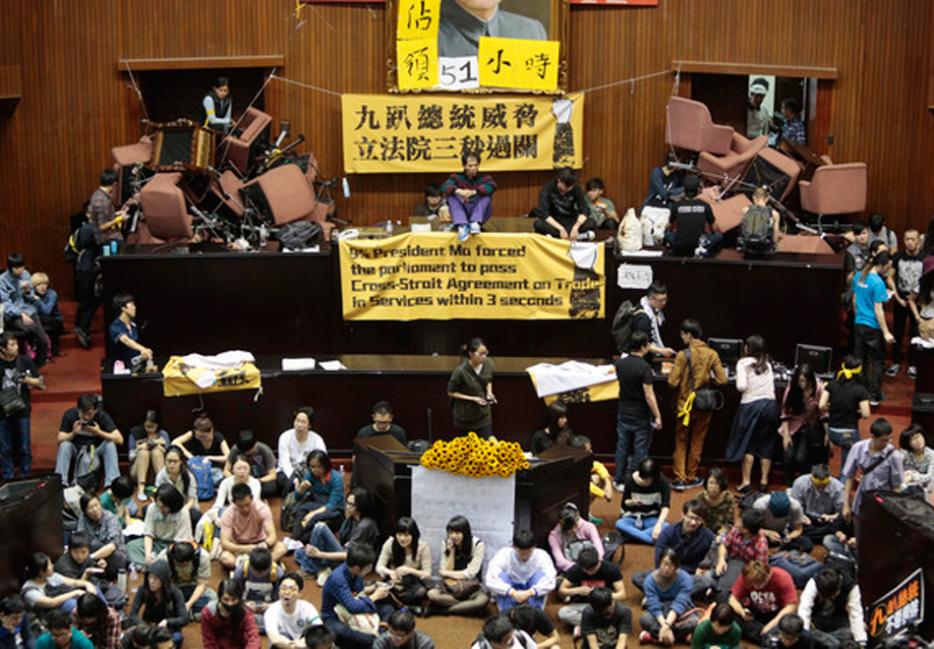It was predictable that the government of mainland China wouldn’t react well to student protests in Taiwan, even if the claim that Beijing governs the island across the strait has never been taken terribly seriously. Student protests, after all, have a history in the People’s Republic, and in just a few weeks we’ll be coming up on the 25th anniversary of Tiananmen.
So a hundred thousand students occupying the public square in front of Taiwan’s Legislative Yuan—and hundreds inside the legislature itself—was bound to get a cool reception from the press organs of the Communist Party of China, almost regardless what they were actually protesting. It turns out, though, there’s a matter of substance being argued in an Asian democracy that happens to sit on one of the more acute geopolitical fault lines, and that might matter even if we never find the wreckage of Malaysia Airlines Flight 370.
Ostensibly setting off the protest was Taiwan’s parliament rubber-stamping the Cross-Strait Services Trade Agreement, which would allow the mainland to invest in sectors of the Taiwanese economy including construction, telecommunications, and health and social services. Except that the approval of the trade pact may have been illegal. Whoops.
Lin Fei-Fan, one of the protest’s leaders, told the Wall Street Journal his objections to the trade pact were both substantive and procedural, saying, “without procedural justice there can’t be real justice.” In an era in which Canadians are about to have their election laws substantially changed with a level of debate inferior to what we get in an extended Jon Stewart interview (and are getting called out for it in Australia), it’s a refreshing reminder that some places are still figuring all this stuff out, and may even be doing a better job of it.
The more fundamental problem is that the KMT may actually be right on the economics, even if they went about it the very wrong way: Taiwan’s economic future lies with the Chinese mainland, even if that isn’t going to mean any kind of political reunification anytime soon. The sheer mass of China’s economy, its increasing financial importance throughout Asia, and its general proximity mean a trade deal to liberalize exchanges with the People’s Republic is a certainty in the long term, one way or another.
But of course, Canadians have had their own visceral reactions against trade pacts in their history, and not just during the 1988 election. Taiwan, however, can uncontroversially claim to have more intense concerns about preserving its sovereignty than Canada did back when Brian Mulroney was running for re-election. After all, the US wasn’t at the time claiming to be the rightful government of Saskatchewan.
It’s that fear that is motivating the protests and the Sunflower Movement. China has been throwing its weight around in the Pacific regularly of late, and even if they’re not making violent threats, the people of Taiwan have satellite TV, and they saw what just went down in Crimea. Russia’s undeniable economic and cultural ties with Crimea were used as a political excuse for the invasion and eventual severance of territory that was internationally recognized as Ukraine’s. Taiwan’s youth can be excused for not wanting to set any precedents by embracing the mainland just yet, at least until Beijing starts doing something really crazy—like holding elections.






